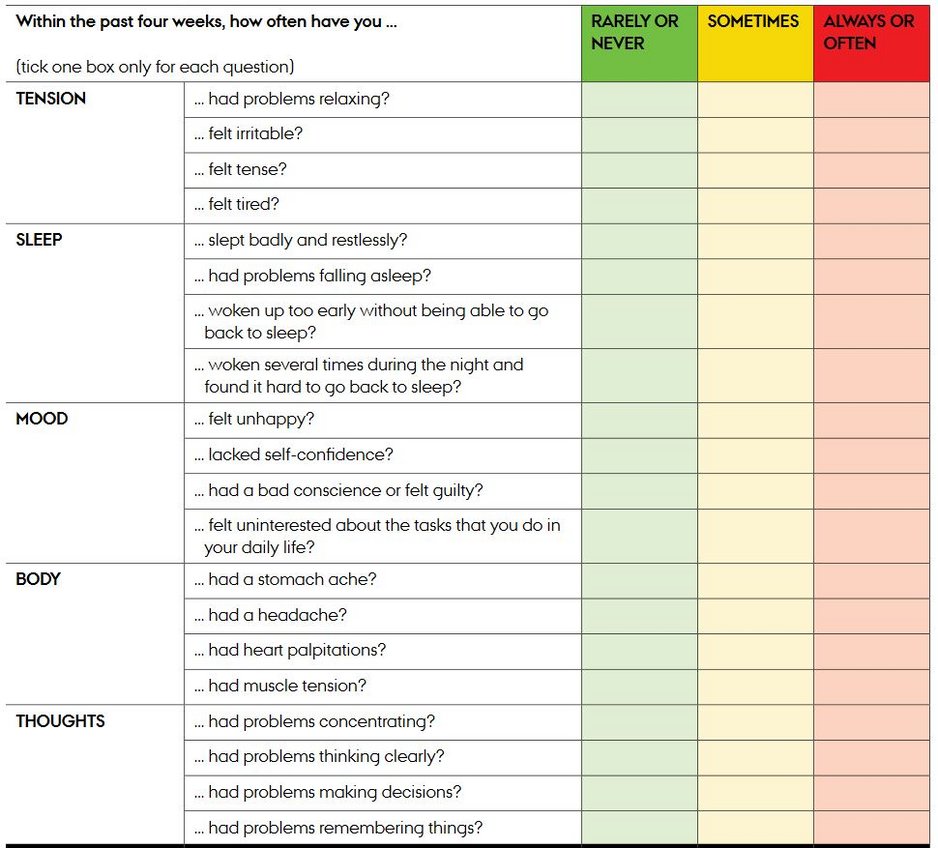Signs of stress may be triggered by several factors, both private and work-related. To help you identify the possible signs of stress, we have provided the following tools for you:
Remember that you are always welcome to reach out to:
Stress is most often caused by a combination of several work-related factors, including the individual’s private life and his or her own expectations and demands (see figure to the right). Some of the common causes of stress during a PhD project can be:
To find a work-life balance, you should try to be aware of the following domains; self, work, family and friends. A typical pitfall is that work spills over into private life and causes conflict or difficulties in getting the other domains to function in a satisfactory way.
Even when we are thriving and feeling well, it is natural to experience brief periods of stress, for example in the period up to an important deadline or an exam. As long as the stress is temporary, it is an appropriate reaction that helps us to overcome strain.
Long periods of stress can trigger a number of physical and psychological symptoms that may have a negative impact on work capacity and health. The table below shows some of the most typical symptoms of stress. You can also find a printable PDF version of the table here.
If stress is not reduced and a balance re-established, stress can have more serious consequences and constitute a genuine threat to both health and work capacity. Even though stress affects the individual, the person’s surroundings play an important role, and factors in both private life and work life can either aggravate stress or help protect against it.

Source: Danish Health Authority, leaflet on stress, 2007
Learn more about stress:
Read more about typical warning signs and symptoms of stress overload (unhealthy stress) on the AU HR website "Understanding stress".
If you experience stress or workload pressure, it is important to address (cope with) the issue early on and in the right way. There is no one-size-fits-all coping strategy. It’s all about choosing the right strategy(ies) for your specific stress situation. If you can do something about the problem yourself, it’s always a good idea to try and do so. If the problem is out of your own control, it may be an idea to seek help or support from your network and/or try and reduce the discomfort by seeking calm and/or exercising.
There are generally three adaptive types of coping strategies: